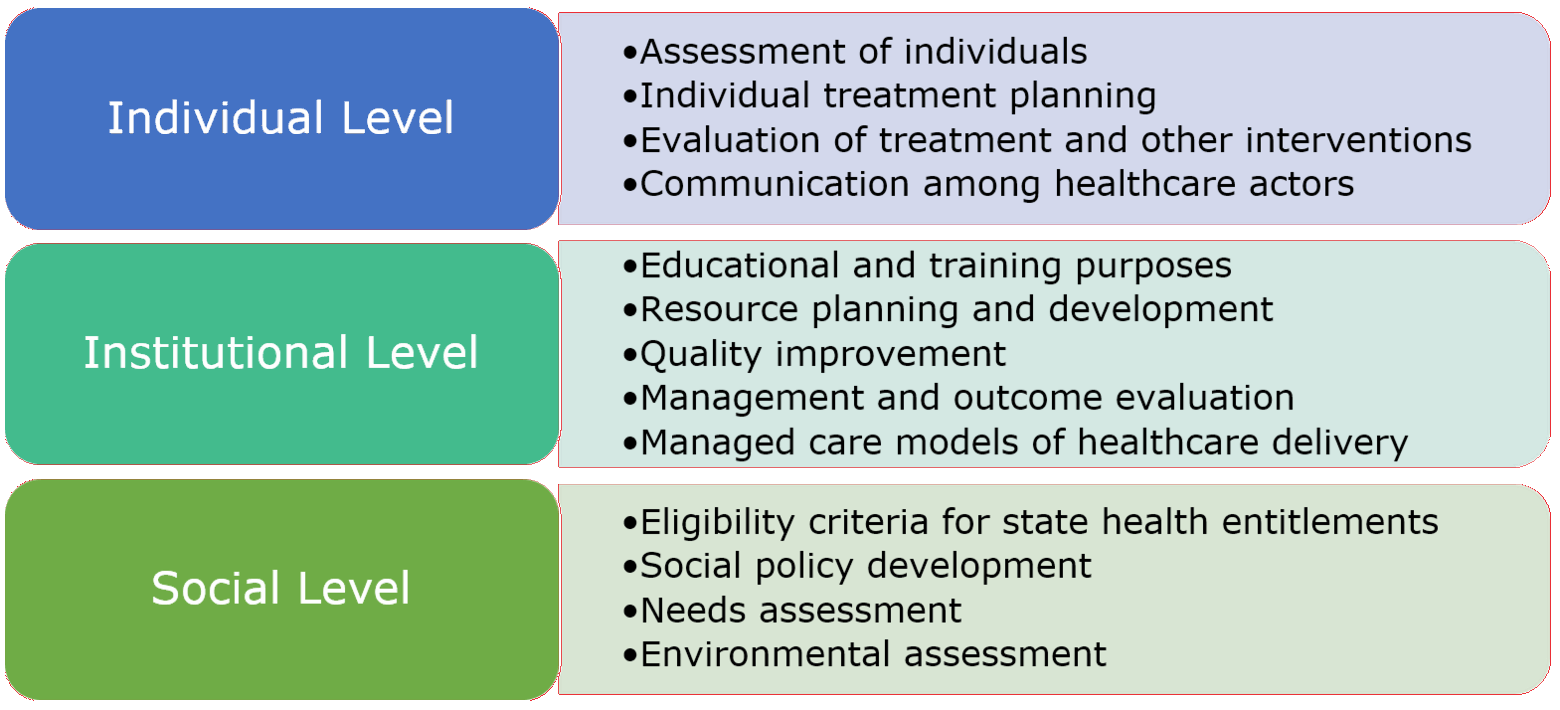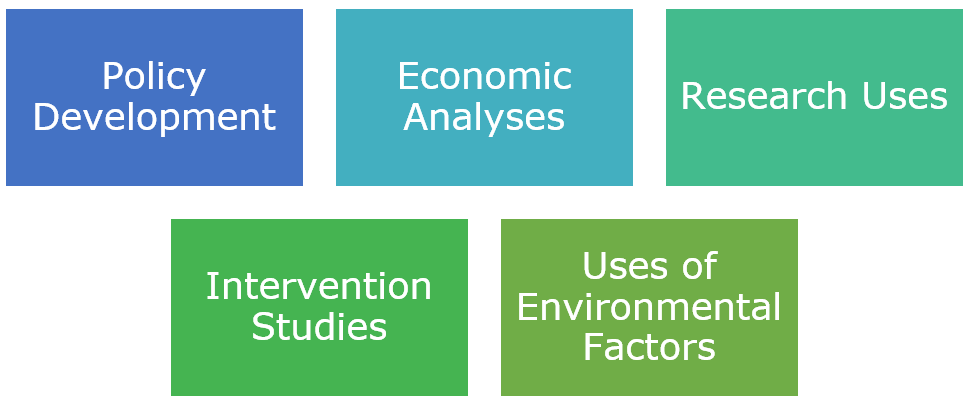About
The International Classification of Functioning, Disability and Health, known more commonly as ICF, is a classification of health and health-related domains. As the functioning and disability of an individual occurs in a context, ICF also includes a list of environmental factors.
Studies show that diagnosis alone does not predict service needs, length of hospitalization, and level of care or functional outcomes. Nor is the presence of a disease or disorder an accurate predictor of receipt of disability benefits, work performance, return to work potential, or likelihood of social integration.
This means that if we use a medical classification of diagnoses alone it will not have the information needed for health planning and management purposes. Data about levels of functioning and disability is lacking. ICF makes it possible to collect those vital data in a consistent and internationally comparable manner.
Purpose
For basic public health purposes, including the determine the overall health of populations, the prevalence and incidence of non-fatal health outcomes, and to measure health care needs and the performance and effectiveness of health care systems, we need reliable and comparable data on the health of individuals and populations. ICF provides the framework and classification system for these purposes.
ICF is a scientific tool for consistent, internationally comparable information about the experience of health and disability.
ICF Applications Service provisions at different levels include:

Other kind of uses include:

Get Standard
Permission from WHO is required for reproducing, reprinting or translation of ICF. Fill in the form here
References










